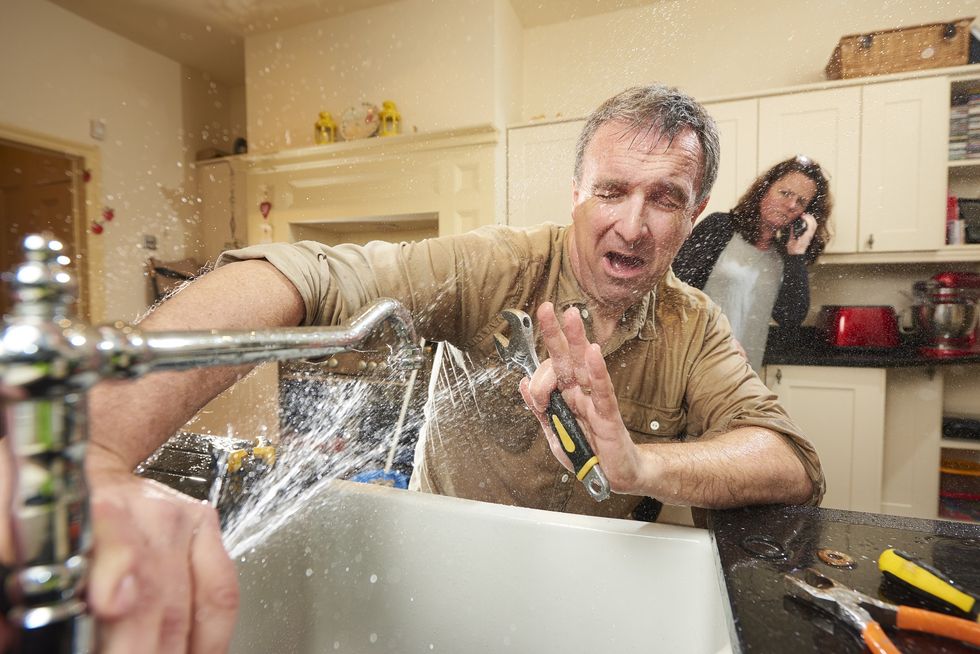A government agency is urging ministers to speed up the rollout of smart meters as water is becoming a big challenge across the UK
GETTY
A government agency is urging ministers to speed up the rollout of smart meters as water is becoming a big challenge across the UK
Don't Miss
Most Read
Trending on GB News
Smart water meters must be made compulsory across all households to protect the UK against severe drought, the National Infrastructure Commission (NIC) has insisted.
In a new report, they warned that the nation must reduce water supplies to protect itself against surging demand, extreme droughts and a growing population.
It said: “The Commission recommended that government should enable all water companies to roll out compulsory smart metered charging to better manage demand.
“The Assessment also argued that water resource expenditure, on both supply and demand, should not be priced out of the upcoming price review in the face of other upwards pressures on bills.”
Over the coming decades the UK faces a real and growing risk of water shortages, especially in the south and east of England.
An increasing population and a lack of new infrastructure are factors contributing to water scarcity.
Do you have a money story you’d like to share? Get in touch by emailing money@gbnews.uk.

In March, the government and Ofwat announced accelerated installation of 462,000 smart meters as part of wider accelerated water infrastructure delivery
GETTY
Although it is important for the government and water companies to ensure water supply for the future by tackling the above problems, by rolling out smart water meter, the public can be mindful of how much they are using.
The average person in the UK uses 150 litres a day, according to reports.
With the average shower at seven or eight minutes a day, Water UK, the body representing the water industry is urging Britons to shorten their showers by a couple of minutes.
If the recommendation for compulsory water metering goes ahead, it could reduce the demand by 17 per cent across the country.
According to the Government, smart metering will generate total bill savings to households of £5.6billion over the course of the rollout, giving consumers the information they need to save energy.
The report continued: “Over the coming decades the UK faces a real and growing risk of water shortages, especially in the south and east of England.
“The Government must deliver a combined additional water supply and demand reduction of 4.8billion litres a day by 2050.”
The NIC suggests this could be achieved by building or extending reservoirs, desalinating seawater and creating water recycling plants where treated sewage water is pumped back into the drinking supply.
Sir John Armitt, the NIC’s chairman said: “We face a make-or-break time for the long-term prospects of UK infrastructure. There has been some progress. But other areas have seen few developments, or worse, progress has reversed.”
Currently smart water meter devices are being rolled out across Suffolk, with Essex to follow soon afterwards.
Kieran Ingram, group water director for Essex & Suffolk Water, said smart meter technology had improved in recent years, and is “more reliable” than its electricity and gas counterparts.
The smart meter roll-out is one part of a £150million investment in infrastructure by the water company.
The average annual water and sewerage bill has risen by six per cent in England and Wales, up £27 to £473.
LATEST DEVELOPMENTS:
Essex & Suffolk Water has proposed to increase bills over the next five years, although this is subject to approval by the industry regulator Ofwat.
Ingram added: "Some of the investment comes from customers' bills, the rest of it comes from our shareholders.”
In March, the government and Ofwat announced accelerated installation of 462,000 smart meters as part of wider accelerated water infrastructure delivery.
This supports immediate delivery to help increase the rate of smart metering.
Currently around 60 per cent of households in England (including void properties) are metered but only an estimated 13 per cent of households have smart meters.
Most companies are planning a rollout out of smart meters, with current revised draft plans achieving around 48 per cent smart metering of households by 2030, 73 per cent by 2040 and 76 per cent by 2050.







